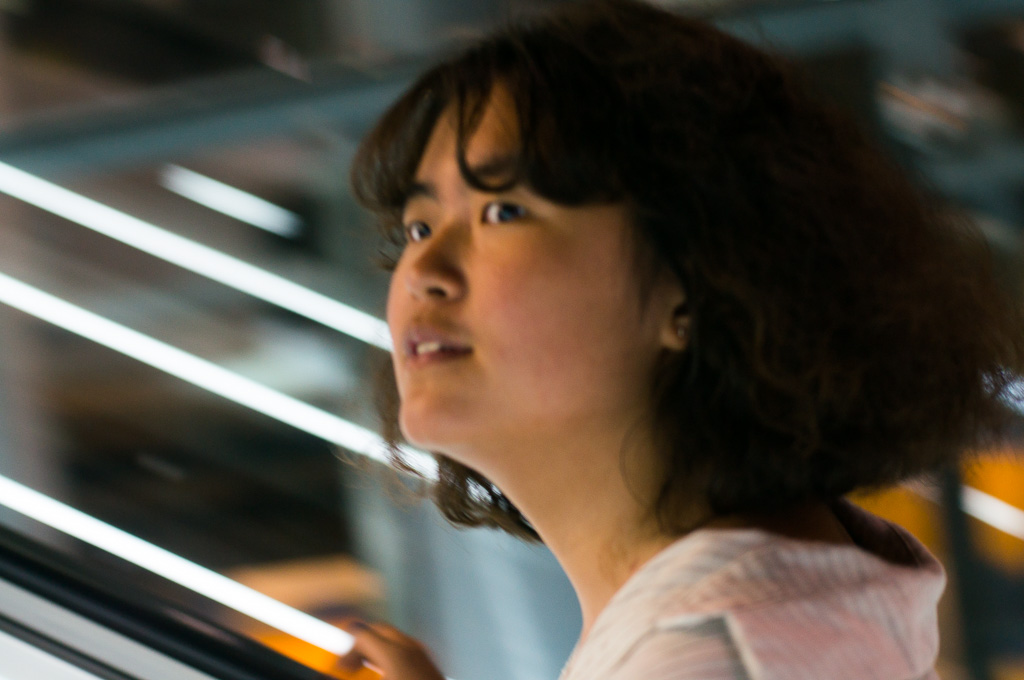things humans can do that computers can’t (yet).
(may 2019) a photo exhibition
Nik: As computers begin to recognize emotions, compose music, and write articles, a future in which artificial intelligences can do anything humans do seems not impossible. I asked a few humans; “What can you do that computers can’t?” to look beneath the surface of human intelligence, to see what makes humans human, and what makes us complex computers.

Enrico
“I can listen. I can be moved by the sixth book of the Aeneid. And the fourth. We are especially good at being especially imperfect in what we do. I think this makes human life precious, the fact that we are limited. It gives value.”
Nik: Would the human endeavour be valuable if we did everything perfectly? “I don’t think so. In some way I think we’re braver than gods. Because in some way we’re confronted by the idea of being limited. Being perfect is being flat. Like The Netherlands.”
“Judas and Magdalena are at the cinema, and Magdalena is a prostitute who, according to the bible, turned Judas against Jesus. So they’re at the cinema and they’re making love while Jesus is dying on the cross. And God suddenly appears and he points at Magdalena and basically blames her for the death of his child. What Magdalena says is ‘God, I’m not afraid of you, you who’s had a child without making love. What would you understand of this whole mess that is human life?’
Achilles was talking to his mother, who is a demigoddess, and Achilles is going through a very hard period because his best friend, Patroclus, had just died. It’s very interesting because Achilles is like the paradigm of the Greek hero, this beautiful man who is extremely strong, extremely brave, and idealised. But after his friend’s death he cries. His mother appears to him because he doesn’t want to fight anymore, and she reveals to him that the Gods in the Olympus are actually jealous of the condition of man. Because it’s a mess, but it’s still a mess that Gods and Goddesses envy, from their condition of immortality and perfection.”
“I think if computers could think they’d be envious of man.”

Ruei
“I think emotion is the main point that I can do over a computer. Because I think when you are making a decision you have to observe how people react and I think it’s hard for a computer to analyse this.”
“Building trust. Imagine if my computer doesn’t work. Then the computer is broken. So I will just throw it away and change it for another one. But as a human if I do something that breaks your heart you wouldn’t just; ‘OK. I’m not going to make friends with you.’ There is still a chance for those people to pick up the friendship again and again.”
Nik: Would you want to be immortal?
“No. I definitely wouldn’t want to live forever, because it would mean I’m not satisfied by my life. If I can live until a certain point where I could feel like ‘Ok. I can just die without any regrets,’ that means I’m satisfied by my life. So if I’m living forever it means I’m not satisfied by my life anymore… …There’s no point in living forever. There’s too much desire, and much more desire equals much more suffering.”
Nik: Maybe in an infinite lifetime you could overcome this kind of suffering. Would you want to?
“No. I wouldn’t want to completely overcome suffering because I think happiness is relative. If there was no suffering, I wouldn’t feel happier.”

Caoimhe
“I can fall in love in a couple of minutes and I don’t think a computer can. I think I can feel things that a computer can’t. Because computers have to deal with information and algorithms that exist, whereas I think humans can deal with information in terms of love and emotions and relationships, which don’t exist.”
Nik: What do you mean ‘don’t exist’?
“If you spend a day with someone, I think it’s possible for a human to really actually fall in love with that person, but a computer couldn’t because they don’t have all the necessary information to make a call…”
Nik: Would you say that’s irrational?
“Yea. We can be irrational and computers can’t.”
Nik: Are computers too rational to fall in love?
“Yea. This thing we’re calling love is ever-changing and totally irrational and so varied that it’s just… …it’s what makes a human being a human being, and not a computer. Maybe it’s like the ultimate combination of everything in our surroundings, of using all our senses and all the inputs around us, and then based on that we make this weird snapshot decision of how we feel about it, that a computer can’t. Because we can come up with a decision that doesn’t make sense, but it’s still real, because we feel it.”
“Humans are way better at making mistakes, which is so necessary.”
Nik: Necessary for what?
“A good life.”

Ian
“I have the physical capability to run away from destruction, unlike computers. The day will come when there is an AI uprising; the sole saviour, our own two legs.”

Nik
I can reflect. I think this is the root cause of my humanness. Without reflection I could not think about my thoughts, I could not continuously reinvent myself, I could not be confused.

Gaby
“Dance.”
Nik: You could get a robot to dance, no?
“Yea, but it wouldn’t dance as good… …Improvise. Feel. More than thinking, it’s feeling.”
Nik: Feel what?
“Emotions, empathy. It’s funny because back home we have these things that catch you when you’re driving too fast. Or you have cops. And well, you can bribe a cop while the machine is always going to charge you. But say there was an emergency and that’s why you were going too fast. A policeman can understand that, but a computer can’t.”
Nik: Do you think humans are complex computers?
“To a certain extent. But we’re not that binary. Computers work in binary code, we don’t.”
Nik: How do you know? “Because we’re always in a grey zone. Say you’re walking or you’re not walking. That would be like; computer –> walk. Or –> not walk. But people are walking and thinking and talking. Maybe, of course, a computer can multitask, but our attention… …I don’t know…”
Nik: Is there something about humans that’s beyond the realm of our mental complexity?
“Depends on what you believe. If you believe in a soul then yea, there’s a soul. Religion… Can computers have a religion? I don’t think so. That would be so funny, can you picture that? Ok, that’s where the feelings come…”
Nik: Are those beyond the system?
“It’s nature versus nurture. Can feelings be nurtured? I don’t think so. I think it’s nature… …If you program something it’s not that it’s within its nature. It’s like; ‘I know economics’ versus a computer can say ‘I know feelings.’”
Nik: A human saying ‘I know economics’ is like a computer saying ‘I know feelings’?
“Yea, it’s not that I feel, it’s just that I know how it is.”
Nik: Will computers ever truly know feelings?
“Maybe… …[AI] It’s both good and bad, not good or bad. And I don’t think a computer can see the difference… …You need some sense of either values or intrinsic values. Some people believe in God’s law, whereas some people believe in certain norms. But you believe in it. It’s not that you are taught ‘economics.’ That process of believing in something, maybe it’s part of our emotions… …whereas a computer is only taught; this is it, just reproduce it.” ■